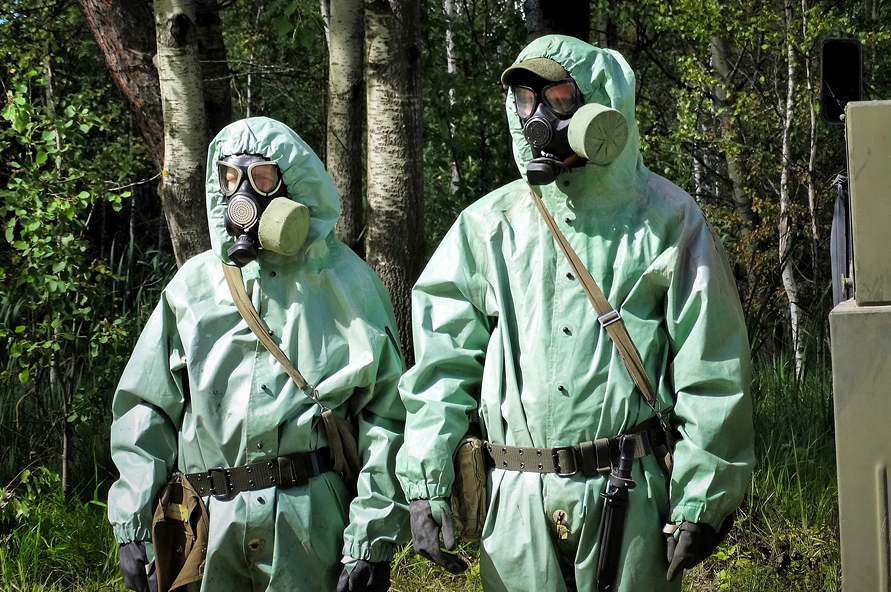MIL-STD-883 Method 1019 Total Ionizing Dose Radiation Hardness Testing
The MIL-STD-883 Method 1019, also known as Total Ionizing Dose (TID) radiation hardness testing, is a critical procedure used to assess the durability and reliability of electronic components exposed to ionizing radiation. This test evaluates how well an electronics system can withstand high-energy particles such as gamma rays or charged particles from cosmic rays, which are prevalent in space environments and certain terrestrial locations.
Developed by the U.S. Department of Defense, this standard ensures that military equipment remains functional under extreme environmental conditions. The test is particularly important for ensuring the reliability of satellite electronics, avionics systems, and other critical defense technologies.
The Total Ionizing Dose testing process involves exposing a specimen to controlled levels of ionizing radiation in a specialized facility. The goal is to simulate real-world exposure scenarios that may occur during deployment or operation. This includes conditions such as space missions, nuclear power plant operations, and other high-radiation environments.
During the test, various parameters are monitored to assess the specimen's performance under radiation stress. These include electrical resistance changes, current leakage, voltage shifts, and overall system functionality. The testing process is designed to identify any vulnerabilities or failures that could compromise operational integrity in a high-radiation environment.
The test results are used to determine whether the equipment meets specified MIL-STD-883 requirements for radiation hardness. Compliance with these standards ensures that electronic components can withstand ionizing radiation without degradation, thereby enhancing overall system reliability and safety.
For R&D engineers working on space-based or nuclear-related projects, this test is essential in validating the design and performance of critical components. It helps in identifying any potential weaknesses early in the development process, allowing for necessary adjustments to be made before full-scale production begins.
The testing facility must adhere strictly to MIL-STD-883 guidelines to ensure accurate and consistent results. This includes precise control over radiation exposure levels, temperature conditions, and other environmental factors that can affect test outcomes. The use of advanced instrumentation and monitoring systems is crucial for capturing detailed data on specimen performance during the test.
Compliance officers also benefit from this testing process as it provides them with independent verification that their products meet stringent military standards. This ensures confidence in the quality and reliability of purchased components, reducing potential risks associated with non-compliant equipment.
Eurolab Advantages
At Eurolab, we offer unparalleled expertise in MIL-STD-883 Method 1019 testing for Total Ionizing Dose radiation hardness. Our state-of-the-art facilities and advanced technology ensure that every test adheres strictly to the latest standards, providing you with accurate and reliable results.
- Comprehensive Testing Capabilities: We can perform a wide range of tests under various conditions, ensuring thorough evaluation of your components.
- Accurate Instrumentation: Our facilities are equipped with high-precision instruments that provide precise measurements and detailed data.
- Expert Technical Team: Our team of highly qualified engineers and technicians ensures the highest level of professionalism and accuracy in every test.
- Compliance Assurance: We maintain strict adherence to MIL-STD-883 guidelines, ensuring that your products meet all necessary standards.
We pride ourselves on delivering exceptional service with a focus on excellence. Our commitment to quality and reliability ensures that you receive accurate test results that can be trusted for critical applications.
Quality and Reliability Assurance
At Eurolab, we understand the importance of quality and reliability in testing, especially when it comes to military-grade equipment. Our rigorous standards and advanced testing methodologies ensure that every component tested meets or exceeds the required specifications.
We employ a multi-step process to guarantee accurate results and compliance with MIL-STD-883 Method 1019:
- Initial Inspection: Each specimen undergoes an initial inspection to ensure it meets the necessary criteria for testing.
- Preparation: Components are prepared according to specific protocols, ensuring that they are in optimal condition for testing.
- Radiation Exposure: Specimens are exposed to controlled levels of ionizing radiation under precise conditions.
- Data Collection: Detailed data is collected during and after the test using advanced instrumentation.
- Analysis: The collected data is analyzed thoroughly to determine compliance with MIL-STD-883 requirements.
- Reporting: Comprehensive reports are generated, summarizing all findings and recommendations for improvement if necessary.
This structured approach ensures that every test is conducted methodically and consistently, providing you with reliable data that can be used to make informed decisions about your product's performance under radiation stress.





